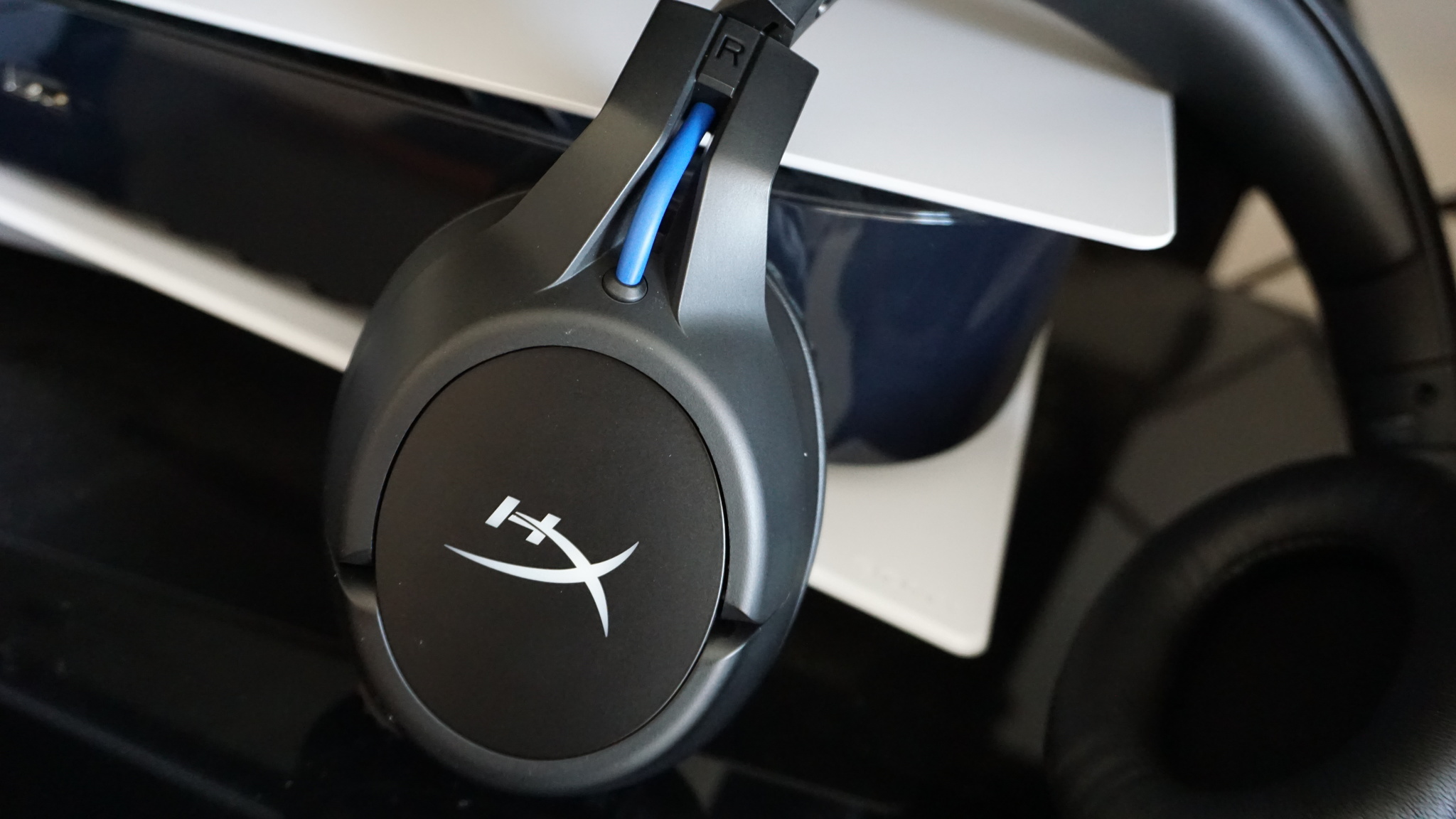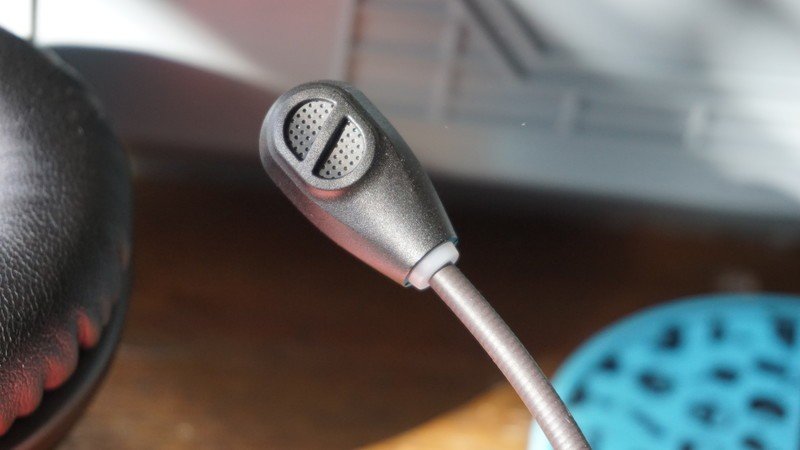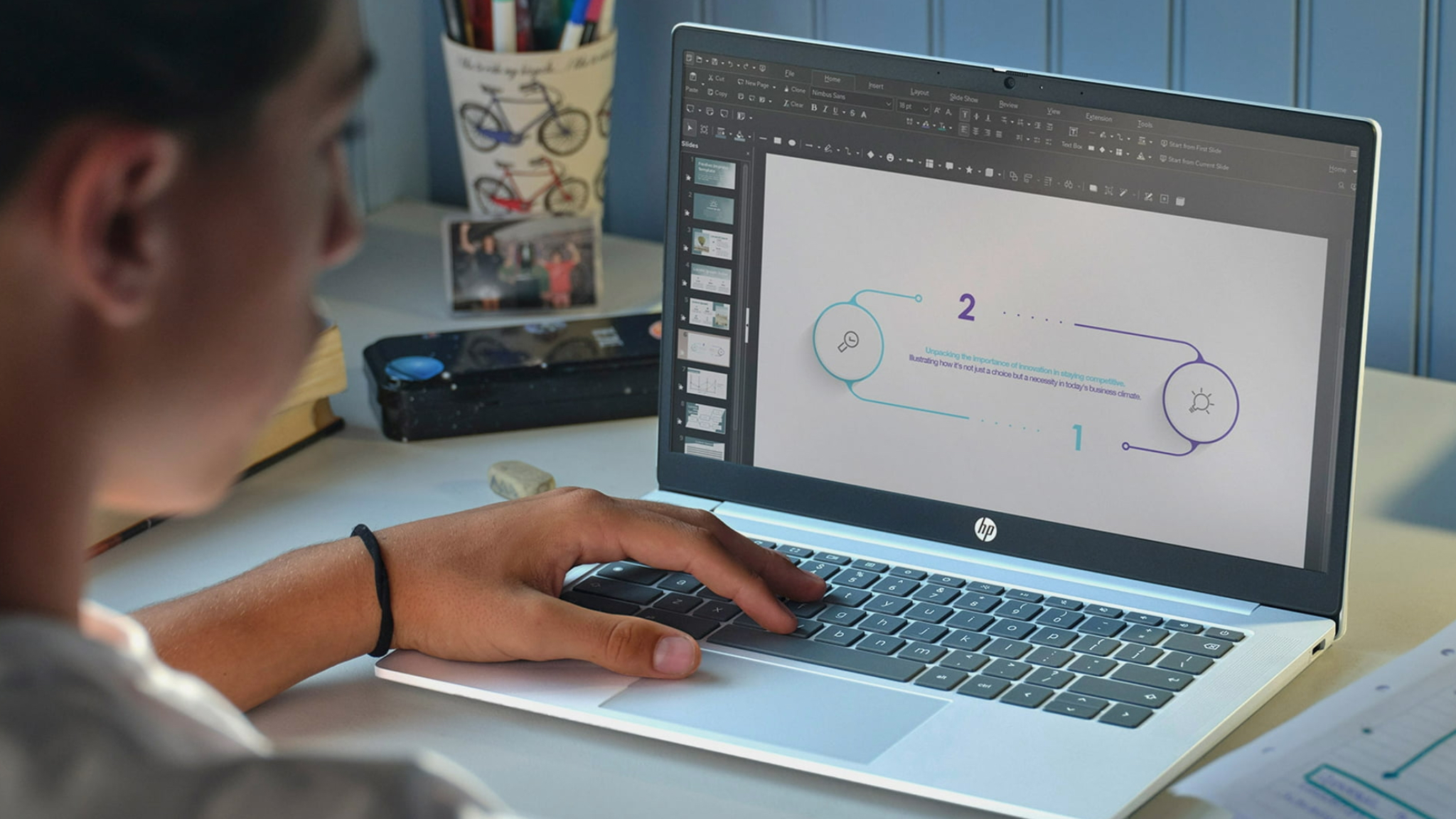Android Central Verdict
Bottom line: HyperX continues to produce high-quality audio peripherals with the updated Cloud Flight. It may not have all the bells and whistles of other models — 7.1 surround sound being the most notable — it offers a great experience with clear audio, a comfortable build, and 30 hours of battery life. Now, if only it could get with the present and use USB-C charging.
Pros
- +
Clear audio delivery
- +
30-hour battery life
- +
Detachable microphone
- +
90° rotating earcups
Cons
- -
No virtual surround sound
- -
Microphone is nothing special
- -
micro-USB charging
Why you can trust Android Central
HyperX boasts plenty of models in its Cloud headset lineup, some of which make up what many consider the best PS5 headsets, though none may be as popular or well-known as the Flight. I had the opportunity to test out the HyperX Cloud Flight S and found it an excellent option for PS4. I've now spent some time with the newest Cloud Flight model, designed for PS5 (alongside PS4 as well, of course). Though I don't think it quite lives up to what the Cloud Flight S offers, it's nonetheless another solid addition to the brand.
If you've ever read any of my previous headset reviews, you'll notice I put as much emphasis on comfort as I do audio quality. As someone who wears glasses, I need to find a headset that doesn't feel like it's putting too much pressure on my head. No matter how good the audio is, I never find it's worth it to put up with an eventual headache. The Cloud Flight delivers on both fronts ... mostly.
HyperX Cloud Flight: Price and availability
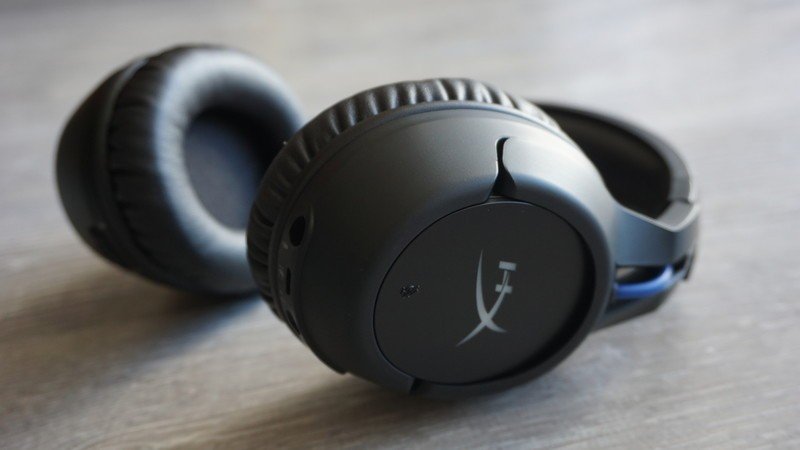
HyperX was supposed to release its newest Cloud Flight model in late September, but it was pushed back to Nov. 15 in the United States and Canada due to shipping delays. However, it was still released back in September for certain regions outside of North America.
The Cloud Flight only comes in one color (black) and is available for $120.
Hyper X Cloud Flight: What's good
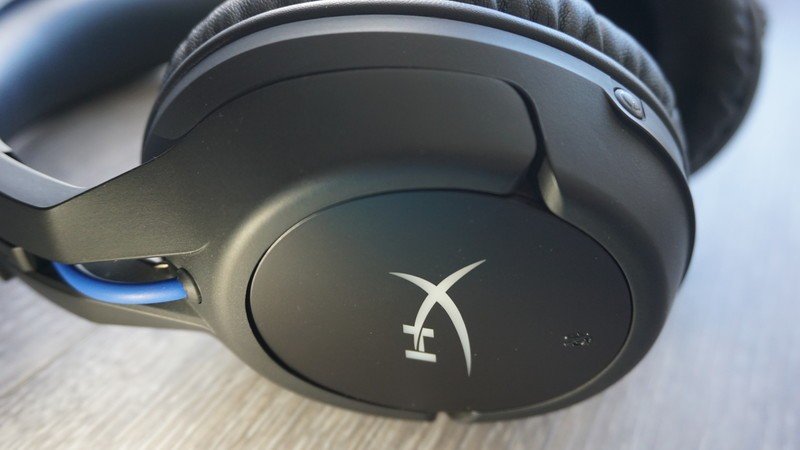
| Category | Spec |
|---|---|
| Driver diameter | 50mm |
| Frequency response | 10 Hz – 21 kHz |
| Microphone pattern | Bidirectional |
| Battery life | 30 hours |
| Wireless range | Up to 20 meters (2.4 GHz) |
| Weight | 315g |
While I've tested several headsets over the last couple of years, it can be difficult to pick apart which ones sound better. Most stereo headsets sound similar to me, and likewise, 7.1 surround sound seems virtually the same on headsets that offer it (a testament to how far audio technology has come). We've gotten to the point where unless a headset has drastically different audio quality — whether it be how it delivers basses or mid-tones — then, generally speaking, most people may not notice a difference. To use an analogy people with glasses would understand, it's like going to the eye doctor and being asked which lenses are clearer — sometimes you just can't tell. The HyperX Cloud Flight sounds about as good as you'd expect from a stereo headset. It's clear, it delivers directional audio, and it beats television speakers.
Its leatherette and memory foam ear cushions are the tried and true design that many other companies go with, so there's nothing that breaks the mold there, but as the saying goes, don't fix what isn't broken. The cushions themselves feel just fine. What differentiates most headsets is the tightness of the clamp and how easy they are to break in. The HyperX Cloud Flight did start off a bit uncomfortable with my glasses, but it didn't take long before it felt better on my head.
Having a detachable microphone is nice, too, because I don't always use it. In fact, I hardly ever do. I tend to play mostly single-player games, and if I ever need to use a headset on my computer, I have a USB microphone I can plug in. I just don't need the headset's mic most of the time. I realize I'm not everyone, though. A lot of people rely on their headset's mic for communication. It being detachable gives everyone a choice whether they want to use it or not.
Get the latest news from Android Central, your trusted companion in the world of Android
To top it all off, 30 hours of battery life is hard to beat. Wireless headsets typically hit anywhere between 10 to 25 hours, with 30 on the higher end of the spectrum. It can depend on how loud or quiet you keep the volume and if you keep the LED off (with it on, battery life can drop to around 13 hours), but you should still get a substantial amount of time before needing to recharge.
HyperX Cloud Flight: What's not good
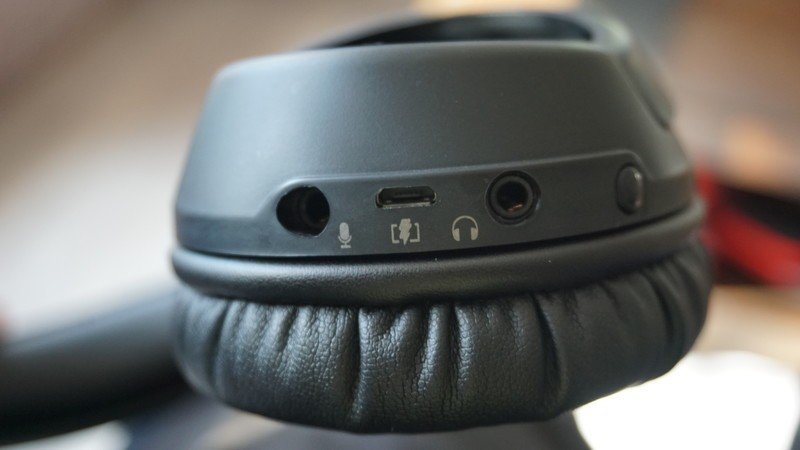
It's always unfair to compare a headset's microphone to a dedicated one, so I go in with the expectation that it won't always sound the best. That's definitely the case here, but it's evident that it's inferior to some other headset mics as well. Not only does it sound a tad staticky, but it also muffles your voice more harshly than usual. It's not the worst I've heard, but it's certainly not the best. I'd describe it as very average for a headset microphone.
That the HyperX Cloud Flight still uses micro-USB charging is another negative in my book. It's almost 2022. There's no reason to favor Micro-USB over USB-C. Other headsets are already doing it. Most people may not even care about this aspect, but speed matters when a wireless headset depends on charging. Its saving grace is that it reasonably hits its 30-hour battery life, give or take some time with variables, of course.
And while its stereo audio is fine, I really wish it had some sort of virtual surround sound like the Flight S. Given its price point of $120 — cheaper than most wireless offerings — it's more than understandable it doesn't have premium features, though.
HyperX Cloud Flight: Competition
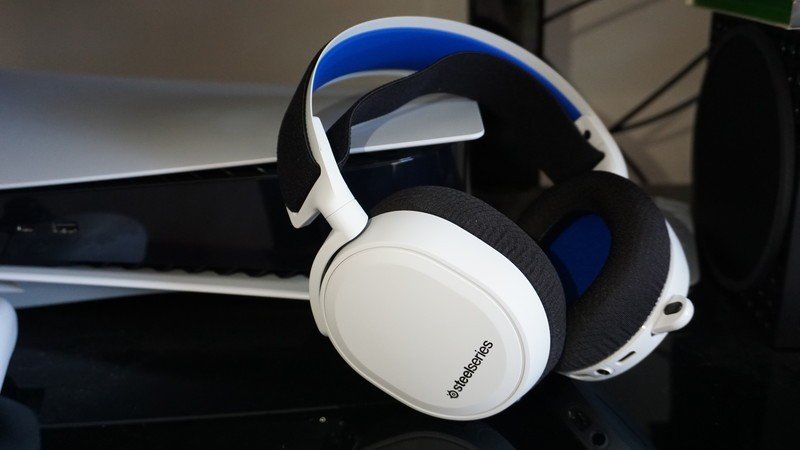
There's no shortage of competition in the wireless headset space. Companies like Razer, SteelSeries, Corsair, and Turtle Beach are just a few among the crowded market. SteelSeries, in particular, just released an updated model of its already near-perfect Arctis 7P headset, dubbed the Arctis 7P+. While it's a tad pricier, it also offers 30 hours of battery life and a multiplatform wireless connection. The 7P+ charges over USB-C and features a ski-goggle suspension headband for next-level comfort.
If you're more interested in what HyperX has to offer, look no further than the Cloud Flight S. Featuring an on-headset button that instantly switches between 7.1 surround sound and stereo, it allows users to really hear the difference that surround sound makes at a moment's notice. Not to be outdone, it also lasts for 30 hours on a single charge, and it's even compatible with Qi wireless charging. Unfortunately, the microphone isn't anything to write home about, but you'll never get a headset mic that can go toe to toe with a dedicated USB microphone.
HyperX Cloud Flight: Should you buy it?
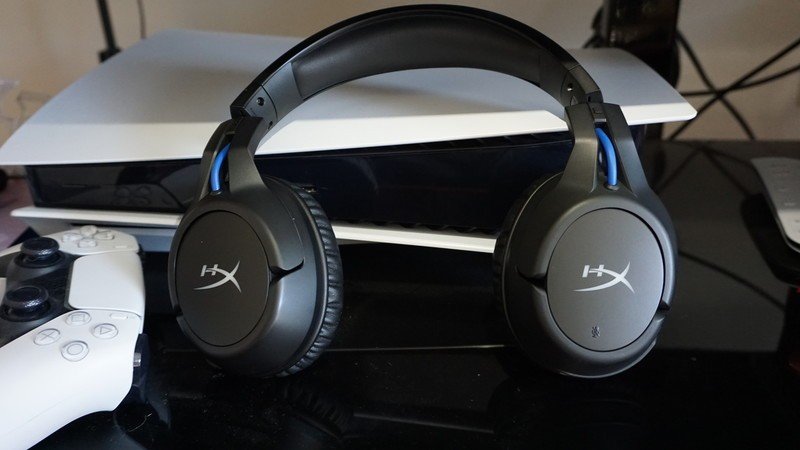
You should buy this if ...
- You prefer wireless connections
- You don't want to spend over $120
- You value long battery life
You shouldn't buy this if ...
- You want 7.1 surround sound
- You wear larger glasses
- You want a wired connection
If you absolutely need 7.1 virtual surround sound or something similar, you shouldn't pick up a stereo headset like the Cloud Flight. For everyone else, it might be exactly what you're looking for. Regardless, 30 hours of battery life, a wireless connection, and a detachable mic are appealing features as long as you're comfortable spending $120.
3.5 out of 5
Despite an underwhelming mic and its absence of USB-C charging and surround sound, the Cloud Flight has a lot going for it. Being priced at $120, it's clearly not meant to compete with the likes of $300 headsets. It's about as good a wireless stereo headset as you can get, minus some of the bells and whistles that could have you paying more.
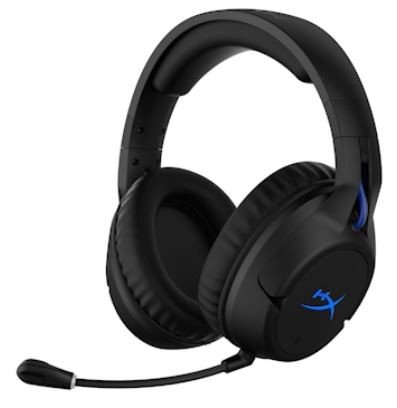
HyperX Cloud Flight
Bottom line: Considering its price, it's hard to fault the Cloud Flight for what it doesn't have. That said, the microphone could be better, and stereo sound isn't for everyone.

Jennifer Locke has been playing video games nearly her entire life. You can find her posting pictures of her dog and obsessing over PlayStation and Xbox, Star Wars, and other geeky things.
